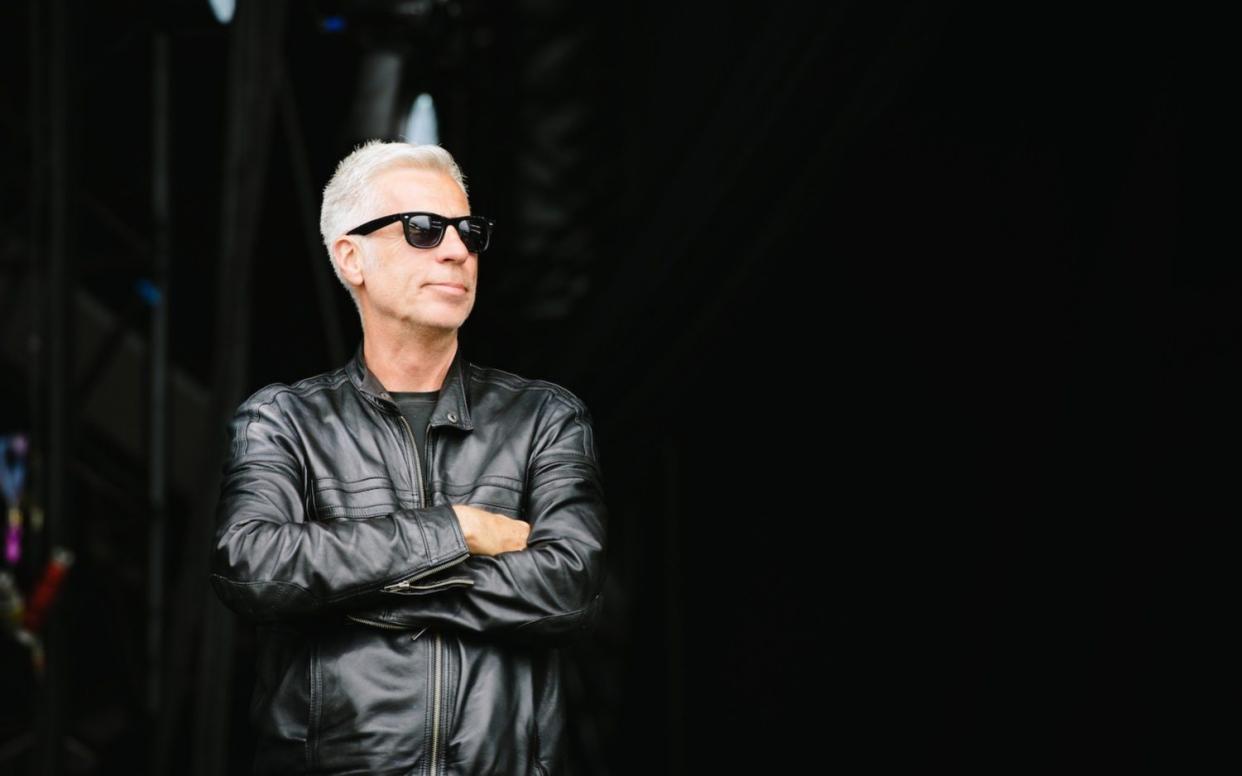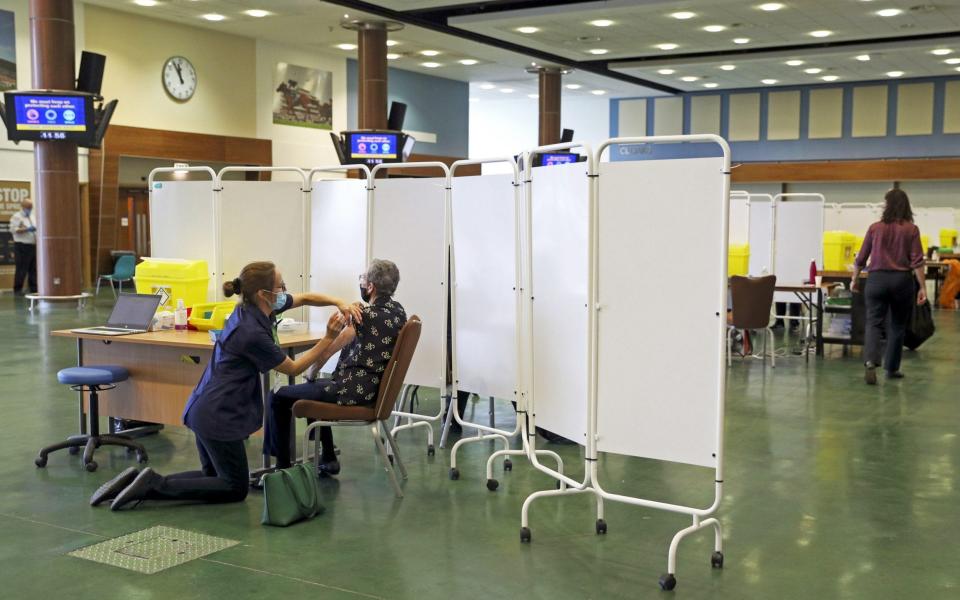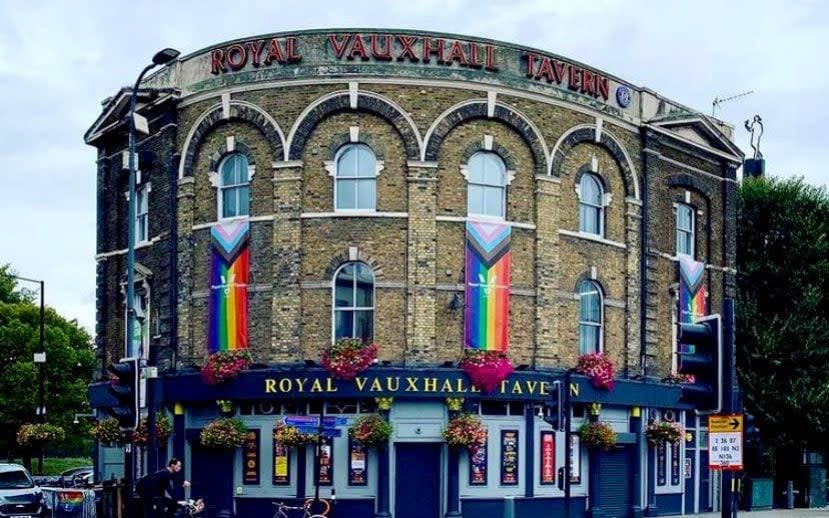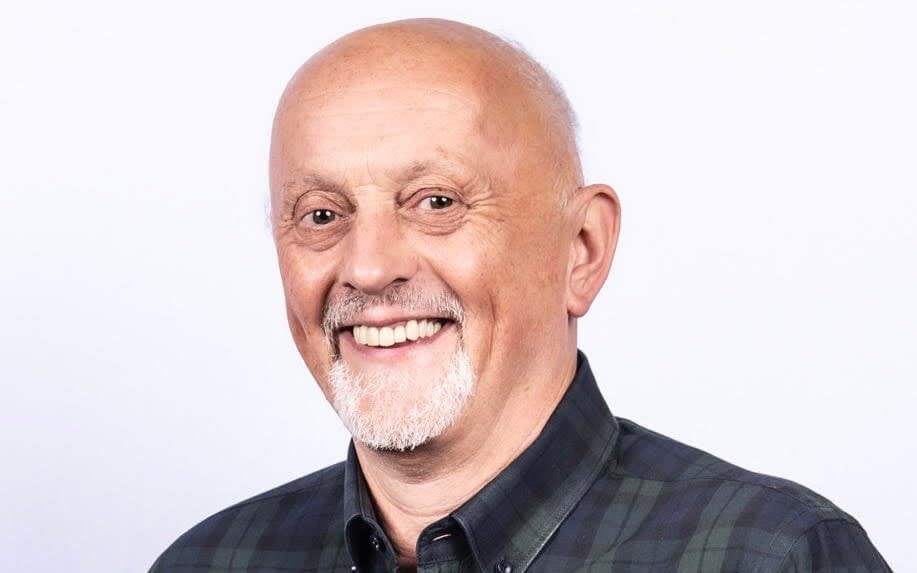Music venues beg the Government to let them help speed up the vaccine roll-out

Could it be ravers to the rescue? With their experience of marshalling thousands of loved-up revellers in vast venues, music-industry leaders have urged the Government to let them help with the vaccine drive.
“This is not Brain of Britain stuff. It’s bloody obvious,” says John Giddings, organiser of the Isle of Wight festival. “[We] need to do something to accelerate this process.”
Giddings recently became frustrated by the pace of the inoculation roll-out, and thought someone needed to crack the whip. On January 5, he took up the mantle himself and tweeted a novel solution: expand vaccination centres to include music and festival sites, and let the thousands of roadies, security teams and bar staff standing idle help to organise the push.
The Government has announced plans to get more than 13 million of the most vulnerable people vaccinated by mid-February. They have also confirmed they will use seven locations – including the NHS Nightingale Hospital at the ExCel complex in London’s Docklands, Epsom Racecourse in Surrey and the Ashton Gate Stadium in Bristol – to host pop-up vaccination centres.
How they will marshal the delivery of the Oxford-AstraZeneca and Pfizer vaccines by that deadline, though, is under heavy scrutiny.
“I’m told I won’t get a vaccine until at least March or April,” says Giddings, 67. “And my experience of promises being made is that they go on longer than you’re told.”

The Army is involved in discussions about the logistics. But, Giddings argues, they don’t have on-the-ground knowledge of the locations involved. “We know all these venues inside-out. The Army would steam in and ask a load of questions that don’t need to be asked.”
In his opinion, the Forces may also lack the soft touch necessary to shepherd vulnerable citizens through what could be a frightening and confusing experience. Meanwhile, he says, “tens of thousands” of music-venue staff have mostly been at loss since last March.
“There are thousands of people employed in the music business who are skilled, capable at running venues and crowd control. You name it, they can do it.
“At the Isle of Wight Festival we employ 500 people, so multiply that by all the festivals in the UK.”

James Lindsay, 62, chief of the Royal Vauxhall Tavern, agrees. “The hospitality industry over the last 43 weeks has been targeted by the Government. And the Royal Vauxhall Tavern, an iconic London landmark and a major contributor to the night-time economy, has been deeply affected by the decisions.”
But won’t the public be more comforted by stiff-backed soldiers than long-haired roadies at vaccination centres? Giddings doesn’t think so.
“We’re not 9-5ers. We’d work on shifts 24 hours a day to expand it. Trucks leave our sites at all hours. If someone said to me: ‘Turn up at Hammersmith Apollo at two in the morning and you’ll get a vaccine,’ I’d be running there now.”
Without a rapid vaccine roll-out, Giddings foresees another abandoned festival season – and a further body-blow to the British economy.
“I want to help accelerate the process, to make our shows happen in June, July, August,” he says. “We make a fortune for the economy – the Isle of Wight Festival made £10 million five years ago.”

Lindsay and Giddings both believe that disparaging perceptions of the live-music industry have meant their offers of help have been overlooked.
“We have a fully-functional building standing idle,” says Lindsay. “And we want to play our part in assisting the local health authority by offering the building to see the vaccination rolled out quicker.”
Giddings is more forthright: “I think we’re treated as second-class citizens. There’s an element of people looking down their noses at us. I don’t think we’re taken seriously.”
But there is precedent for using music venues to help combat the spread of disease. In Berlin, the notorious anything-goes KitKatClub has been open since December for Covid testing. There are more masks among the PPE-sporting clientele than usual – but equal amounts of latex and PVC.
Meanwhile, Heaven nightclub in London, a renowned LGBT+ hangout, has been offering its patrons free condoms and HIV testing for over a decade.

This time, though, it seems Giddings’s call has reached the ears of those in power. While he’s cagey about exactly who he’s talking to, he says he’s “genuinely impressed and surprised by the reaction”.
A Government spokesperson commented: “We are hugely grateful for all offers of support and assistance as we continue to expand our vaccination programme – the biggest vaccination programme in this country’s history.”
Giddings says he’s buoyed, too, by how other music industry leaders, such as Lindsay, have got behind his call.
“I thought I needed to give it a kick up the a---,” he argues. “I’m not trying to reinvent the wheel.” He and his peers only want the Government to listen. “We want to help. We’re willing to help. Please let us help you.”

